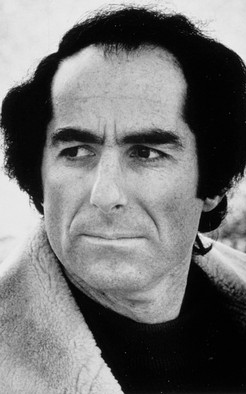
Why I Did Not “Like” Philip Roth’s New York Times Interview
 Last week, while scanning through my Facebook newsfeed for its usual mix of engagement announcements, serious news and Buzzfeed lists, I noticed that several of my male Jewish friends had shared the recent interview Philip Roth gave to Daniel Sandstrom, the editor of the Swedish newspaper, Svenska Dagbladet, reprinted in the New York Times Book Review. “If even one of you reads this absurdly perfect Q&A with Philip Roth, my entire engagement with social media has been worthwhile,” someone posted. Other men “liked” it. No one mentioned the troubling and decidedly imperfect parts of the interview about misogyny.
Last week, while scanning through my Facebook newsfeed for its usual mix of engagement announcements, serious news and Buzzfeed lists, I noticed that several of my male Jewish friends had shared the recent interview Philip Roth gave to Daniel Sandstrom, the editor of the Swedish newspaper, Svenska Dagbladet, reprinted in the New York Times Book Review. “If even one of you reads this absurdly perfect Q&A with Philip Roth, my entire engagement with social media has been worthwhile,” someone posted. Other men “liked” it. No one mentioned the troubling and decidedly imperfect parts of the interview about misogyny.
“In some quarters it is almost a cliché to mention the word ‘misogyny’ in relation to your books. What, do you think, prompted this reaction initially, and what is your response to those who still try to label your work in that way?” Sandstrom asks. Roth responds: “It is my comic fate to be the writer these traducers have decided I am not. They practice a rather commonplace form of social control… In some quarters, ‘misogynist’ is now a word used almost as laxly as was ‘Communist’ by the McCarthyite right in the 1950s — and for very like the same purpose.” –for the same purpose? As Roth must be aware, the McCarthyite right was responsible for silencing, imprisoning and disenfranchising its victims. Surely Roth could not be comparing the intent of his feminist critics with McCarthyites. But as a friend of mine said, why should I be surprised by this response? To mention the word “misogyny” in relation to Roth is a cliché for a reason: because he refuses to acknowledge the possibility of problematic content in his work. It’s worth noting that Roth often gives flippant or provocative responses in interviews. But the idea that Roth views feminist criticism as erroneous and “ a rather commonplace form of social control” is surprising nonetheless.
I have enjoyed many of Roth’s novels. I have even appreciated the more controversial sections of his novels concerning stupid, sexually manipulative and emotionally unstable seductresses—the thought that these descriptions were offered from the point of view of a faulted protagonist eased my sense of guilt as a feminist reader. As Roth himself says in this interview:
“Whoever looks for the writer’s thinking in the words and thoughts of his characters is looking in the wrong direction… The thought of the novelist lies not in the remarks of his characters or even in their introspection but in the plight he has invented for his characters.”
5 comments on “Why I Did Not “Like” Philip Roth’s New York Times Interview”
Comments are closed.




Excellent and well-balanced response to Roth interview. I, too, am a feminist who appreciates Roth as a writer but who also am continuously disappointed in his inability to portray female characters in all their many dimensions. Thanks for writing this.
I, also a feminist, believe that this article is unfair criticism of a man who is only a product of his time. The women’s movement has slowly progressed, and it is clear that the views of women in literature, films and music have a long way to go, but they are only representative of the time they originated from. This can go the same for racism, communism, socialism, nazism, etc.
As any humanities major will learn, there is no such thing as history, because it will continue to be evaluated, and re-evaluated and re-evaluated as times change. You can only try to understand the point of view in the moment, and note the progressions or failures of these movements. If Philip Roth was publishing such anti-female novels at this time, this would be a cause of concern. Since he is not, it does not take away from the fact that he was and will continue to be a legendary author of his time.
I share many of Shayna’s views and in fact wrote about Roth’s misogyny a long time ago in my book THE JEWISH WOMAN IN AMERICA (Dial Press, 1975; New American Library/Plume, 1976), co-aiuthored with Charlotte Baum and the late, much-missed Paula Hyman. You can still find second-hand copies on Amazon, or check out your library. Or maybe you got a copy for your Bat Mitzvah (lucky girl!).
Sonya Michel
I always thought Roth was making fun of his male characters’ inability to rise up to female power without guilt.
Too much blind association of “Roth” with “Mysogyny” without any quality argumentation to prove such a point. I’ve read every prose word published by Philip Roth and my take is that he is much harder on his male characters than on his female characters. Interviewers continue to ask the author to defend himself against “charges of mysogyny” but never ask those who make those charges to explain themselves. It’s then made worse by claiming that Roth is evasive or lame in his response to said claims. Circular logic. And in any case, art is, it doesn’t mean (especially almost never “means” what critics believe it to mean).